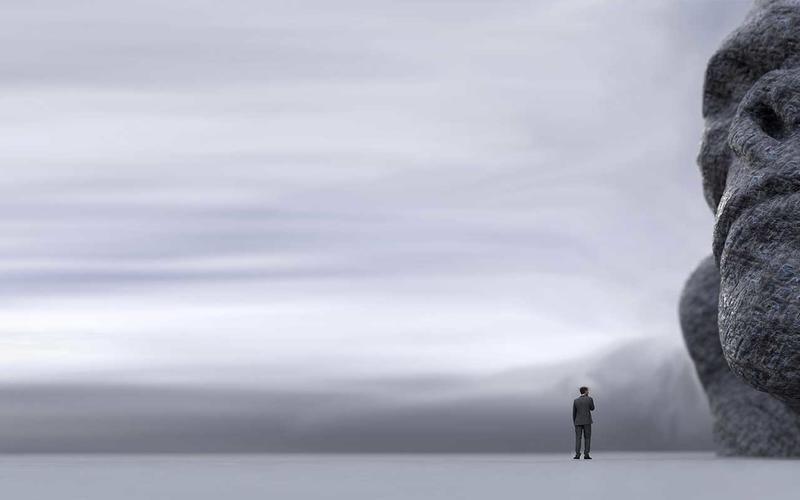Mandatory Intellectomy
Jedi Master
I have finished reading Darwin on Trial by Phillip E. Johnson. It's from 1993, so pretty early among the books we've talked about here, but it covers a lot of ground, and it's clear that even back then the problems with Darwinism were abundantly clear to those who cared to pay attention.
Johnson is a lawyer, and his goal is to analyse the soundness of arguments for evolution. This is an interesting approach and is somewhat close to Stove in that he focuses more on the logic of the arguments than biology.
So he looks at what arguments the Darwinists present to support their theory, strips them of all the biases, irrationality, circular reasoning and so on, and exposes what's left.
I really liked this book, and I was impressed with how many things he covers even though the book isn't all that long. Here's the contents:
Chapter One: The Legal Setting
Chapter Two: Natural Selection
- As a Tautology
- As a Scientific Hypothesis
- As a Deductive Argument
- As a Philosophical Necessity
Chapter Three: Mutations Great and Small
Chapter Four: The Fossil Problem
Chapter Five: The Fact of Evolution
Chapter Six: The Vertebrate Sequence
- Fish to Amphibians
- Amphibians to Reptiles
- Reptiles to Mammals
- Reptile to Bird
- From Apes to Humans
Chapter Seven: The Molecular Evidence
Chapter Eight: Prebiological Evolution
Chapter Nine: The Rules of Science
Chapter Ten: Darwinist Religion
Chapter Eleven: Darwinist Education
Chapter Twelve: Science and Pseudoscience
Near the beginning, he relays a kind of anecdote where somebody asked an audience of experts: "Can you tell me anything you know about evolution, any one thing... that is true?" And every time he asked this a different group of experts, there was only silence. This might be pretty useful because while most people are totally convinced evolution works, they're kind of short on facts when asked to present any. So just asking people this might be a good start.
The book is easy to read, as you don't need any particular knowledge of biology. You just need to be able to think logically, which, as most of us have discovered already, is enough to take the Darwinian story apart with ease. I would even recommend this book to those who are still looking for an introduction to the topic and don't want to learn about nucleotides and amino acids.
Here are some quotes:
We've heard most of this in one form or another, but it doesn't hurt to see the arguments again, especially from somebody who's really good at formulating things clearly. And remember all of this was in 1993! We're pretty slow...
Johnson is a lawyer, and his goal is to analyse the soundness of arguments for evolution. This is an interesting approach and is somewhat close to Stove in that he focuses more on the logic of the arguments than biology.
So he looks at what arguments the Darwinists present to support their theory, strips them of all the biases, irrationality, circular reasoning and so on, and exposes what's left.
I really liked this book, and I was impressed with how many things he covers even though the book isn't all that long. Here's the contents:
Chapter One: The Legal Setting
Chapter Two: Natural Selection
- As a Tautology
- As a Scientific Hypothesis
- As a Deductive Argument
- As a Philosophical Necessity
Chapter Three: Mutations Great and Small
Chapter Four: The Fossil Problem
Chapter Five: The Fact of Evolution
Chapter Six: The Vertebrate Sequence
- Fish to Amphibians
- Amphibians to Reptiles
- Reptiles to Mammals
- Reptile to Bird
- From Apes to Humans
Chapter Seven: The Molecular Evidence
Chapter Eight: Prebiological Evolution
Chapter Nine: The Rules of Science
Chapter Ten: Darwinist Religion
Chapter Eleven: Darwinist Education
Chapter Twelve: Science and Pseudoscience
Near the beginning, he relays a kind of anecdote where somebody asked an audience of experts: "Can you tell me anything you know about evolution, any one thing... that is true?" And every time he asked this a different group of experts, there was only silence. This might be pretty useful because while most people are totally convinced evolution works, they're kind of short on facts when asked to present any. So just asking people this might be a good start.
The book is easy to read, as you don't need any particular knowledge of biology. You just need to be able to think logically, which, as most of us have discovered already, is enough to take the Darwinian story apart with ease. I would even recommend this book to those who are still looking for an introduction to the topic and don't want to learn about nucleotides and amino acids.
Here are some quotes:
When domesticated animals return to the wild state, the most highly specialized breeds quickly perish and the survivors revert to the original wild type.
In other words, the reason that dogs don't become as big as elephants, much less change into elephants, is not that we just haven't been breeding them long enough. Dogs do not have the genetic capacity for that degree of change, and they stop getting bigger when the genetic limit is reached.
The prevailing assumption in evolutionary science seems to be that speculative possibilities, without experimental confirmation, are all that is really necessary.
In short, if evolution means the gradual change of one kind of organism into another kind, the outstanding characteristic of the fossil record is the absence of evidence for evolution. Darwinists can always explain away the sudden appearance of new species by saying that the transitional intermediates were for some reason not fossilized. But stasis - the consistent absence of fundamental directional change - is positively documented. It is also the norm and not the exception.
Descent with modification could be something much more substantial than a tautology or a semantic trick. It could be a testable scientific hypothesis. If common ancestors and chains of linking intermediates once existed, fossil studies should be able, at least in some cases, to identify them. If it is possible for a single ancestral species to change by natural processes into such different forms as a shark, a frog, a snake, a penguin, and a monkey, then laboratory science should be able to discover the mechanism of change.
If laboratory science cannot establish a mechanism, and if fossil studies cannot find the common ancestors and transitional links, then Darwinism fails as an empirical theory.
Much confusion results from the fact that a single term - "evolution" - is used to designate processes that may have little or nothing in common. A shift in the relative numbers of dark and light moths in a population is called evolution, and so is the creative process that produced the cell, the multicellular organism, the eye, and the human mind. The semantic implication is that evolution is fundamentally a single process, and Darwinists enthusiastically exploit that implication as a substitute for scientific evidence.
The task of science is not to speculate about why God might have done things this way, but to see if a material cause can be established by empirical investigation.
The fossils provide much more discouragement than support for Darwinism when they are examined objectively, but objective examination has rarely been the object of Darwinist paleontology. The Darwinist approach has consistently been to find some supporting fossil evidence, claim it as proof for "evolution," and then ignore all the difficulties.
Although some components of living systems can be duplicated with very advanced techniques, scientists employing the full power of their intelligence cannot manufacture living organisms from amino acids, sugars, and the like. How then was the trick done before scientific intelligence was in existence?
... creation by Darwinist evolution is hardly more observable than supernatural creation by God. Natural selection exists, to be sure, but no one has evidence that it can accomplish anything remotely resembling the creative acts that Darwinists attribute to it. The fossil record on the whole testifies that whatever "evolution" might have been, it was not the process of
gradual change in continuous lineages that Darwinism implies. As an explanation for modifications in populations, Darwinism is an empirical doctrine. As an explanation for how complex organisms came into existence in the first place, it is pure philosophy.
If empiricism were the primary value at stake, Darwinism would long ago have been limited to microevolution, where it would have no important theological or philosophical implications. Such a limitation would not imply acceptance of creationism, even in the least restrictive definition of that term. What it would imply is that the scientific establishment after 1859 was carried away by enthusiasm, and thought it had proved an entire creation story when it had only filled in some minor details. If Darwinists accepted the primacy of empiricism, they could still hope eventually to find a naturalistic explanation for everything, but for now they would have to admit that they have made a big mistake.
That admission has not come, because empiricism is not the primary value at stake. The more important priority is to maintain the naturalistic worldview and with it the prestige of "science" as the source of all important knowledge. Without Darwinism, scientific naturalism would have no creation story. A retreat on a matter of this importance would be catastrophic for the Darwinist establishment, and it would open the door to all sorts of false prophets and mountebanks (at least as naturalists see them) who would try to fill the gap.
To prevent such a catastrophe, defenders of naturalism must enforce rules of procedure for science that preclude opposing points of view. With that accomplished, the next critical step is to treat "science" as equivalent to truth and non-science as equivalent to fantasy. The conclusions of science can then be misleadingly portrayed as refuting arguments that were in fact disqualified from consideration at the outset. As long as scientific naturalists make the rules, critics who demand positive evidence for Darwinism need not be taken seriously. They do not understand "how science works."
We can only speculate about the motives that led scientists to accept the concept of common ancestry so uncritically. The triumph of Darwinism clearly contributed to a rise in the prestige of professional scientists, and the idea of automatic progress so fit the spirit of the age that the theory even attracted a surprising amount of support from religious leaders. In any case, scientists did accept the theory before it was rigorously tested, and thereafter used all their authority to convince the public that naturalistic processes are sufficient to produce a human from a bacterium, and a bacterium from a mix of chemicals. Evolutionary science became the search for confirming evidence, and the explaining away of negative evidence.
If critics are sophisticated enough to see that population variations have nothing to do with major transformations, Darwinists can disavow the argument from microevolution and point to relationship as the "fact of evolution." Or they can turn to biogeography, and point out that species on offshore islands closely resemble those on the nearby mainland. Because "evolution" means so many different things, almost any example will do. The trick is always to prove one of the modest meanings of the term, and treat it as proof of the complete metaphysical system.
We've heard most of this in one form or another, but it doesn't hurt to see the arguments again, especially from somebody who's really good at formulating things clearly. And remember all of this was in 1993! We're pretty slow...





